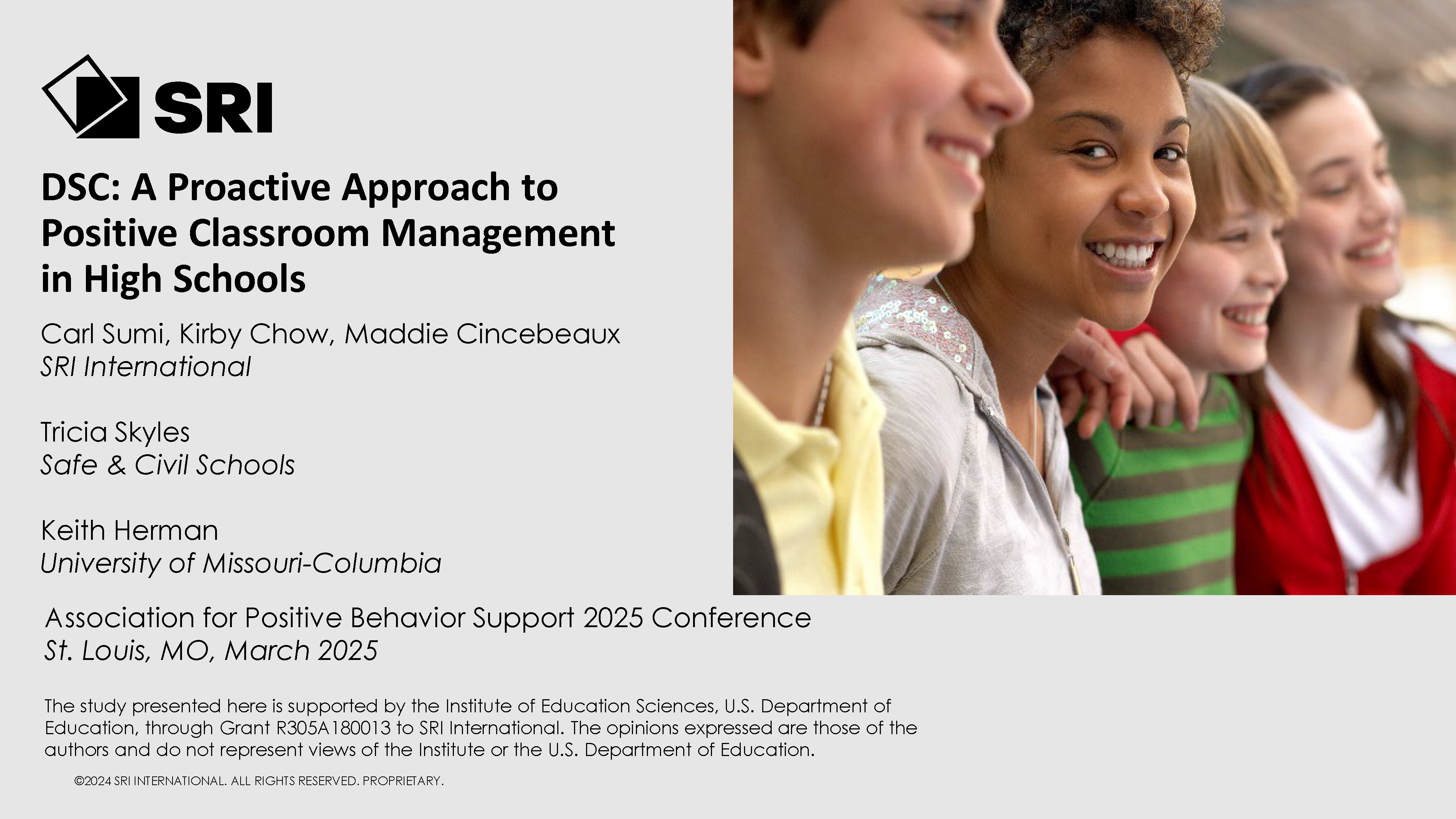
DSC: A Proactive Approach to Positive Classroom Management in High Schools
Discipline in the Secondary Classroom (DSC) is an effective program to help high school teachers design a classroom management plan that prevents problems, fosters student engagement, teaches students to behave responsibly, and creates a positive and productive classroom environment ...
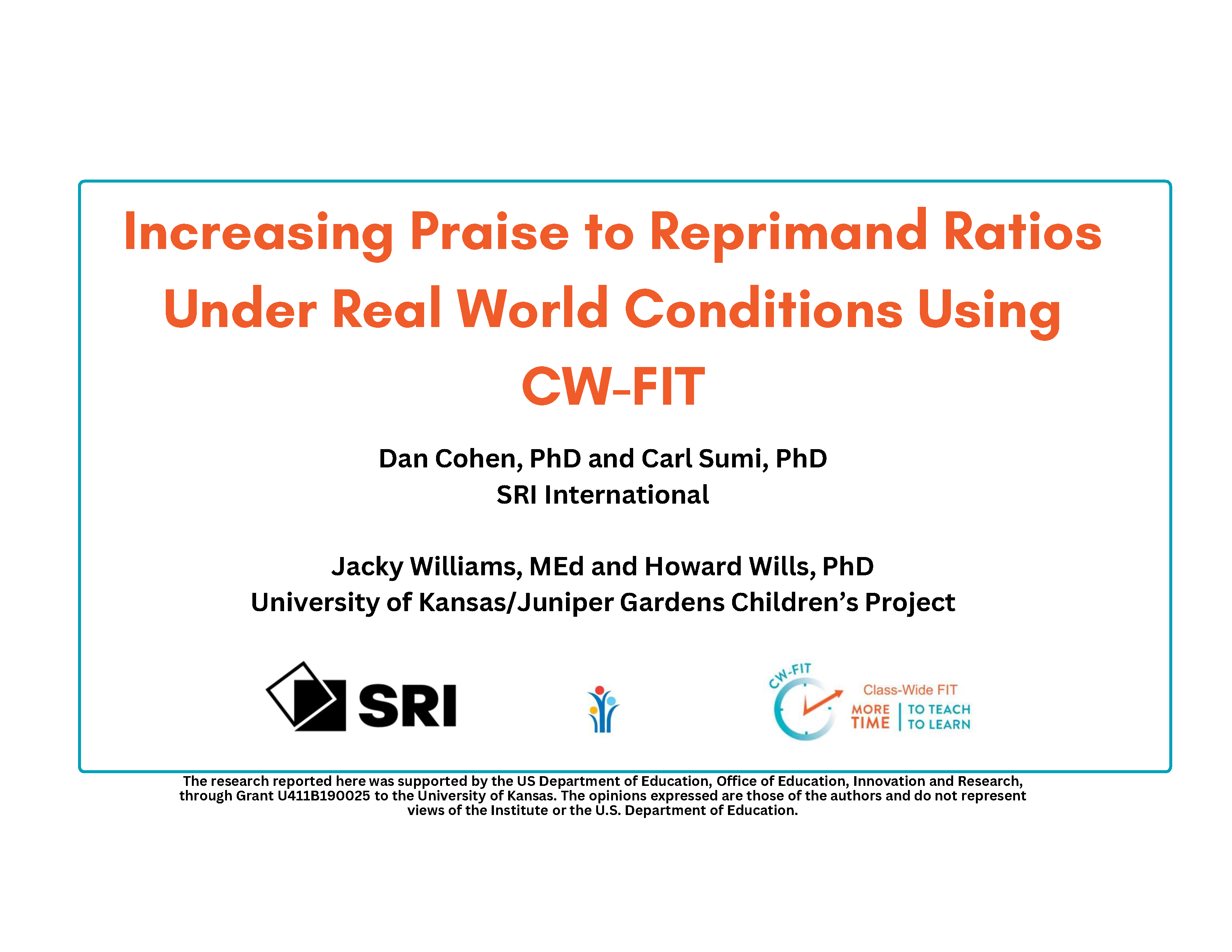
Increasing Praise to Reprimand Ratios Under Real-World Conditions Using CW-FIT
Increase teacher use of evidence-based classroom management practices using CW-FIT. Learn about how an innovative district coaching model and online professional development system can support coaching and teacher implementation in low resource settings ...
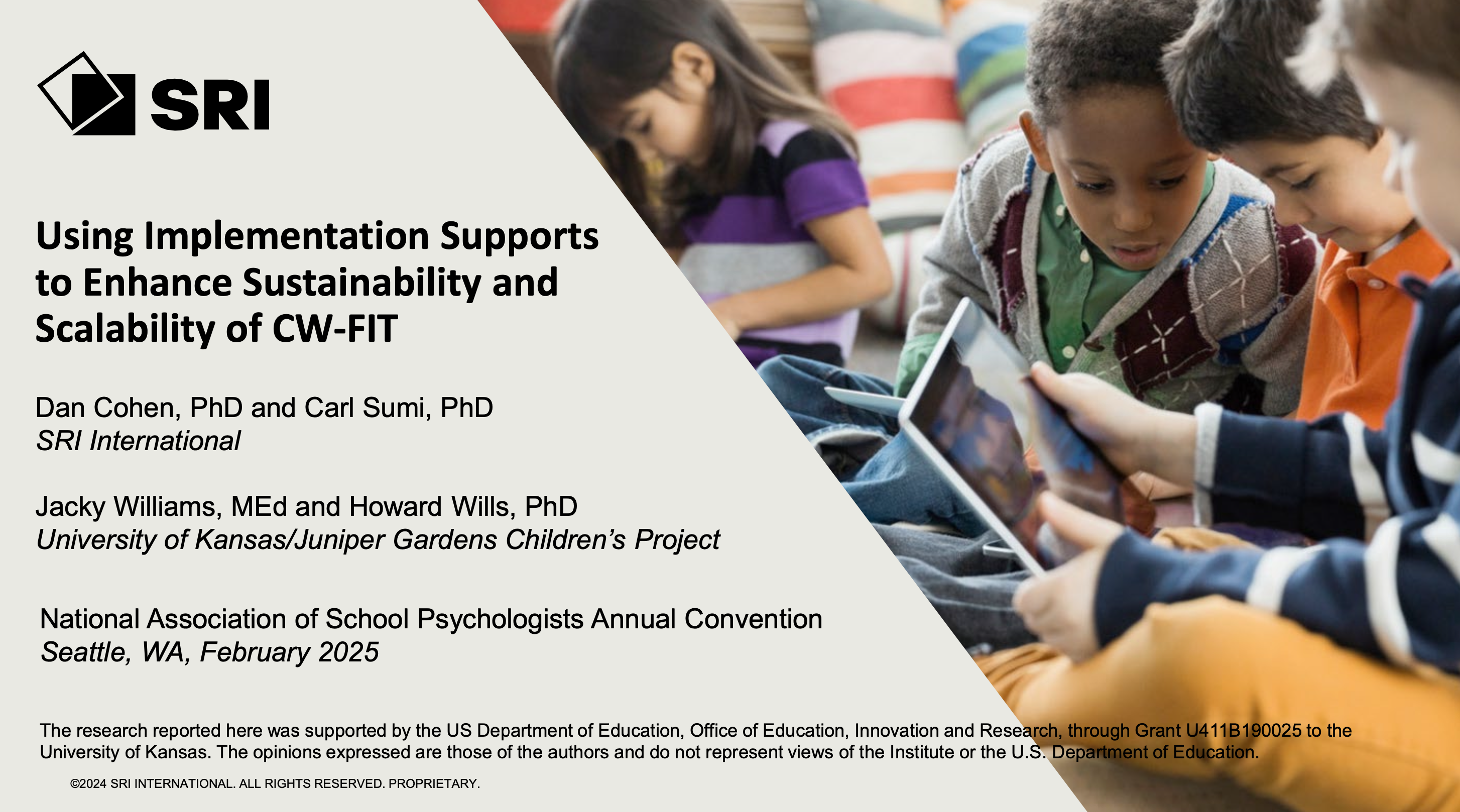
Using Implementation Supports to Enhance Sustainability and Scalability of CW-FIT
Implementation supports are critical to delivering effective interventions. Learn about how a district coaching model and online professional development system supported sustainability, scalability, and positive student outcomes for CW-FIT. ...
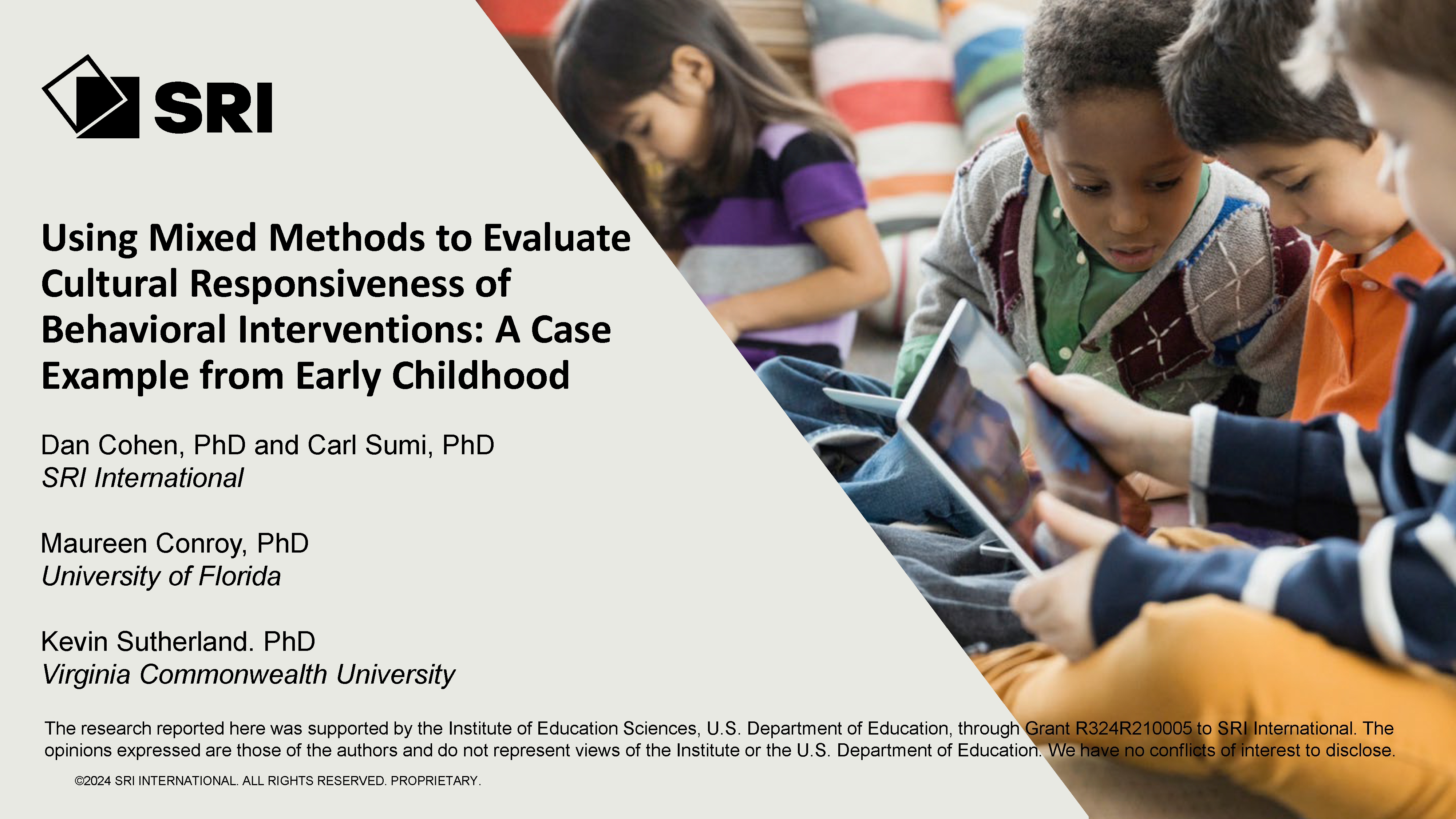
Using Mixed Methods to Evaluate Cultural Responsiveness of Behavioral Interventions: A Case Example from Early Childhood
Given increasing cultural diversity and disparities in outcomes, the need to evaluate the cultural responsiveness is greater than ever ...
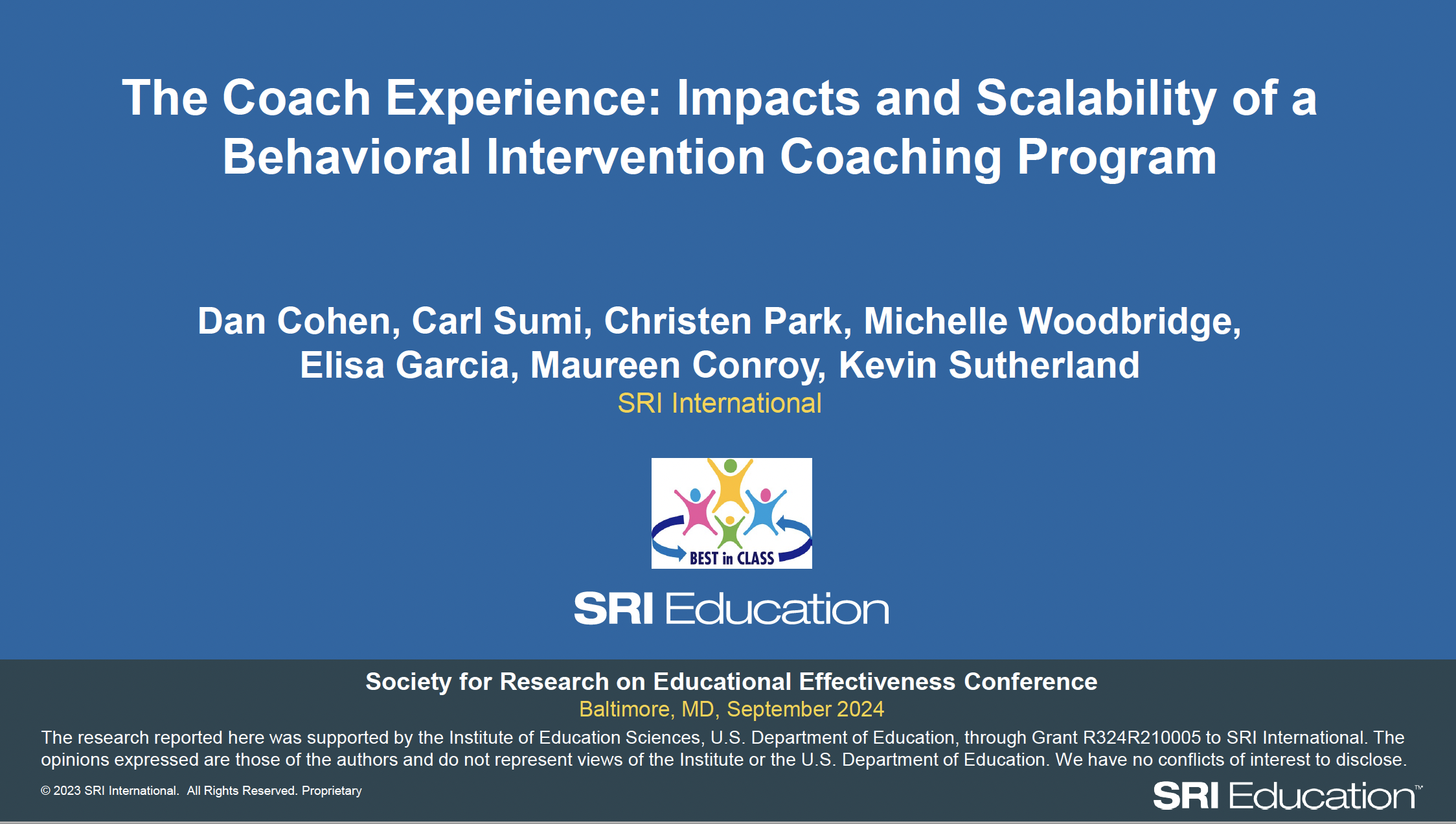
The Coach Experience: Impacts and Scalability of a Behavioral Intervention Coaching Program
We are conducting a cluster randomized control trial (RCT) to examine the effects of the BEST in CLASS training and coaching relative to a business-as-usual control. In addition, we are conducting coach focus groups to understand implementation of the Tier 2 training and PBC intervention strategies under routine conditions where ...
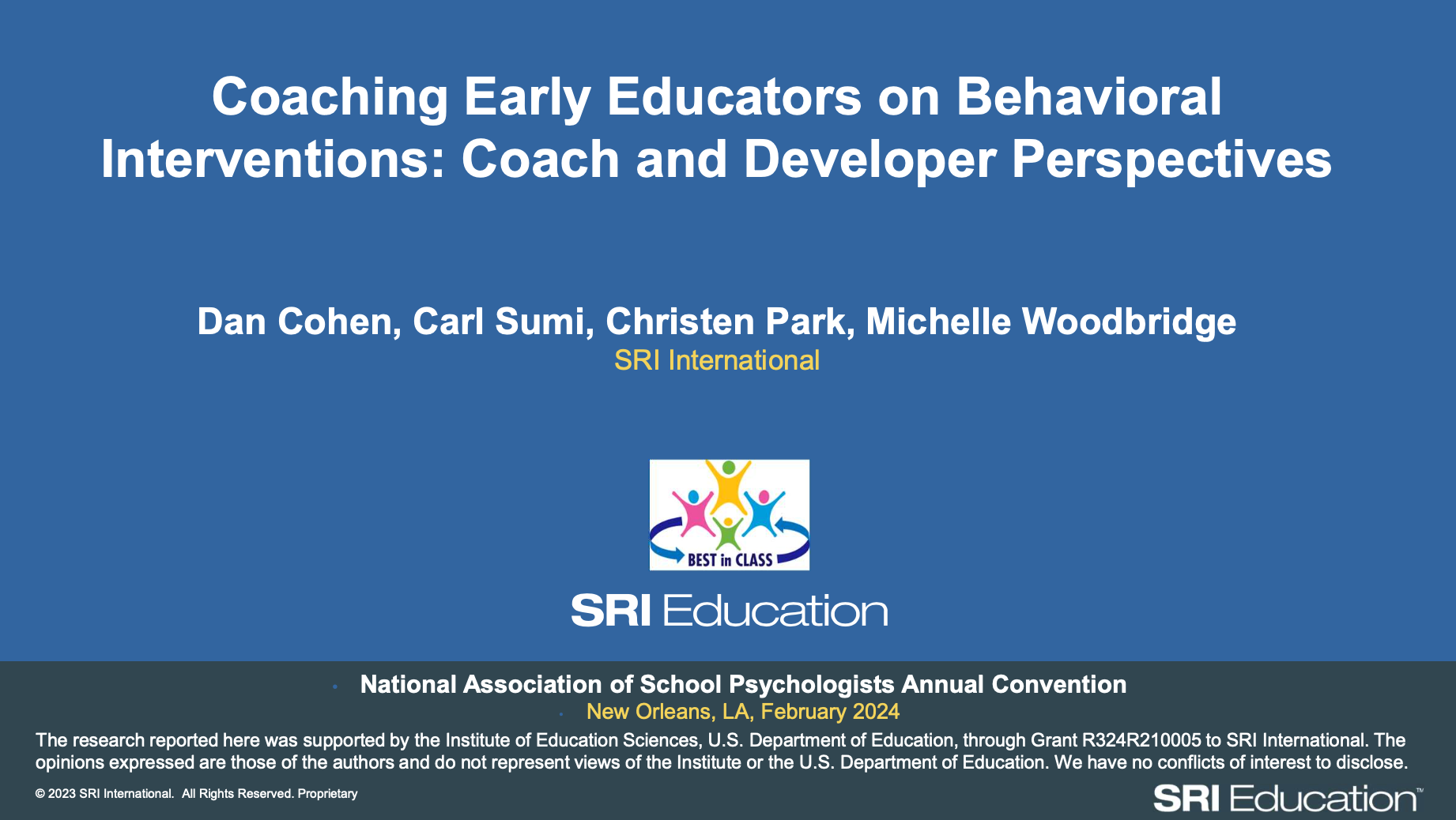
Coaching Early Educators on Behavioral Interventions: Coach and Developer Perspectives
In this presentation, we share coach and program developer perspectives on barriers and facilitators of coaching educators to deliver behavioral interventions in early childhood settings ...
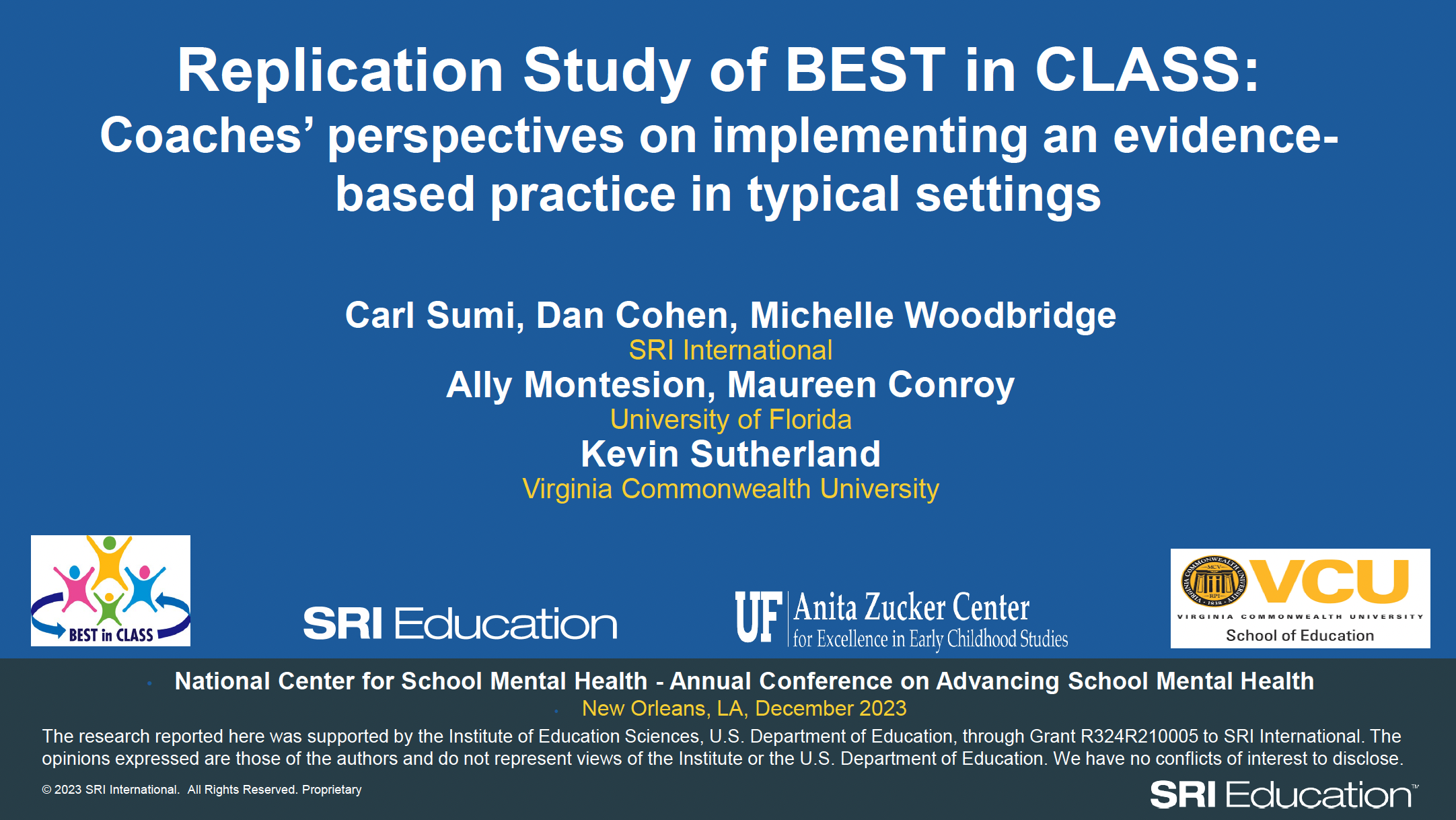
Replication Study of BEST in CLASS: Coaches’ perspectives on implementing an evidence-based practice in typical settings
BEST in CLASS is a tier 2 intervention to prevent and reduce challenging behaviors and promote appropriate behaviors in preschoolers. Through coaching, early childhood teachers are empowered to deliver evidence-based practices with children at risk for social-emotional and behavioral delays. In this presentation, we will share coaches’ perspectives about the ...
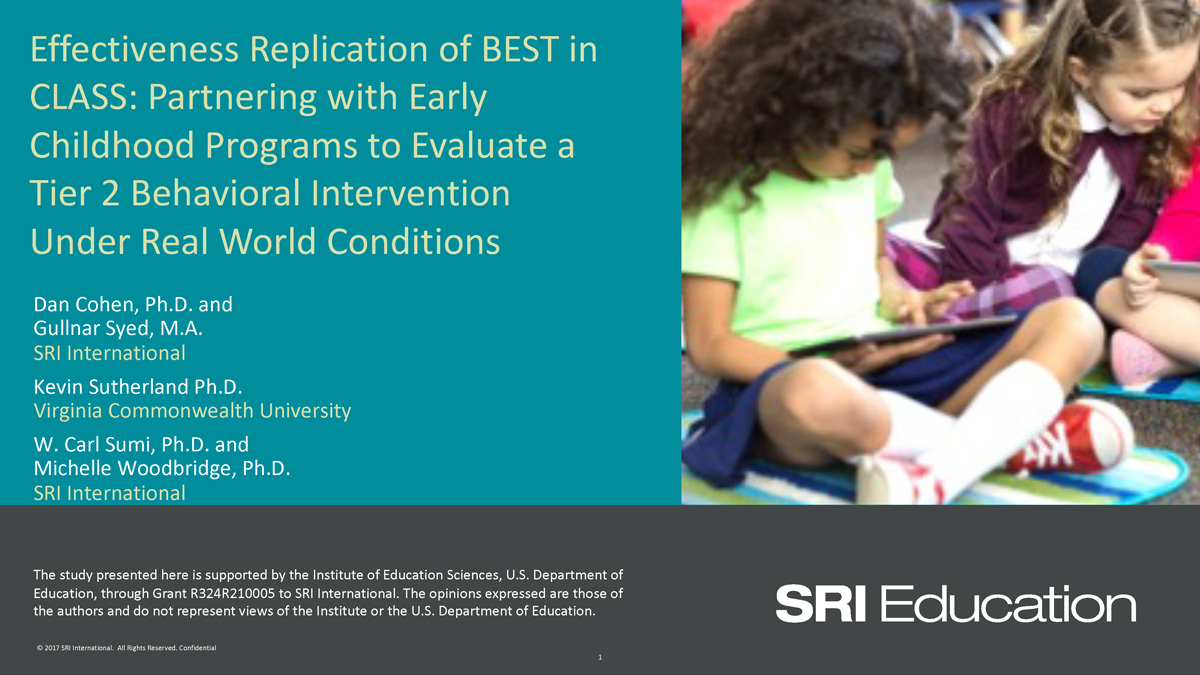
Effectiveness Replication of BEST in CLASS: Partnering with Early Childhood Programs to Evaluate a Tier 2 Behavioral Intervention Under Real World Conditions
This presentation will describe the development of BEST in CLASS and discuss considerations for conducting large-scale effectiveness research in the context of partnerships with local early child education programs ...
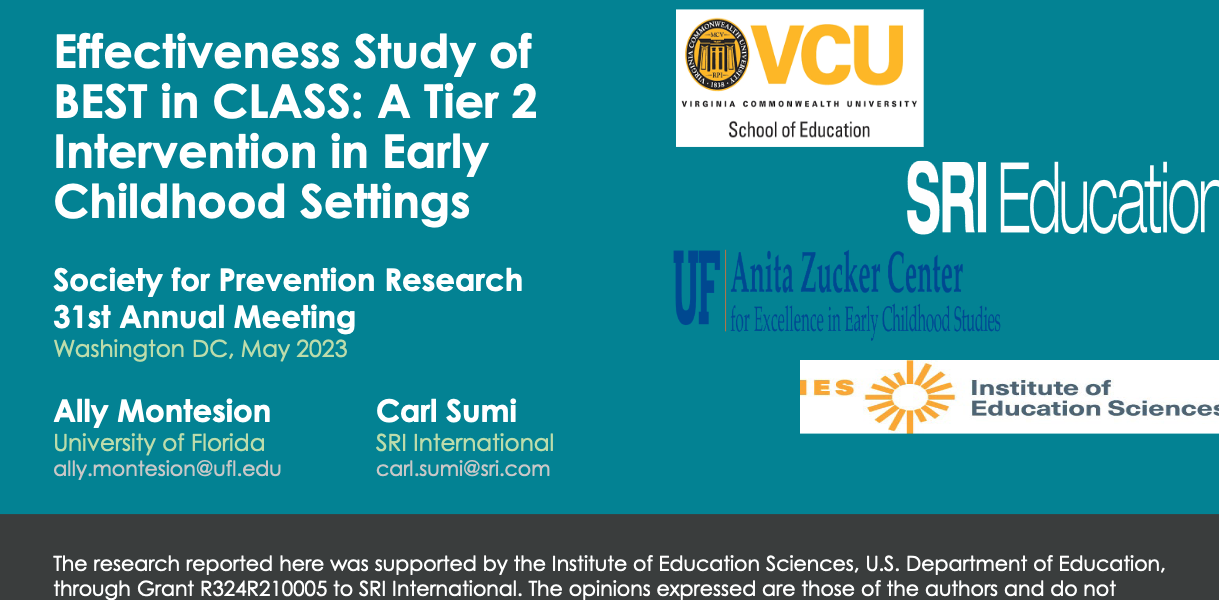
Effectiveness Study of Best in CLASS: A Tier 2 Intervention in Early Childhood Settings
(SPR 2023) This presentation provides an overview of the BEST in CLASS early childhood intervention along with the evidence base for BEST in CLASS and describes a systematic replication study currently being conducted ...
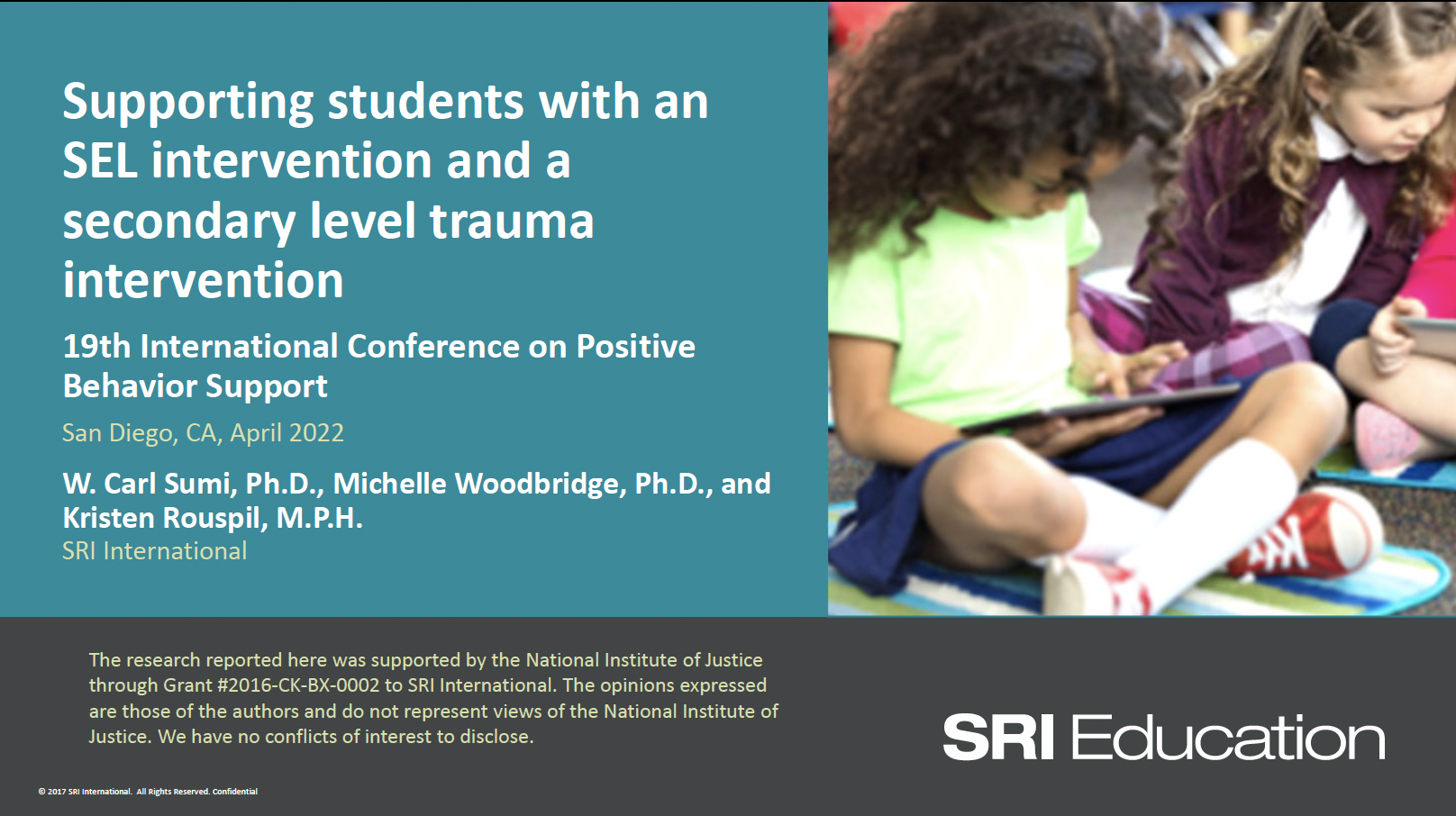
Supporting Students with an SEL Intervention and a Secondary Level Trauma Intervention
(APBS 2022) This presentation will describe the implementation of a primary prevention SEL program (Second Step) and a trauma‐informed intervention (Bounce Back) implemented in urban elementary schools. Outcomes from an RCT will be discussed ...
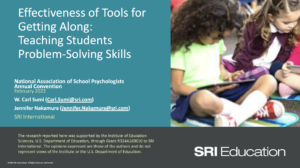
Effectiveness of Tools for Getting Along: Teaching Students Problem-Solving Skills
(NASP 2022) This presentation described results from an effectiveness study of the Tools for (NASP 2022) Getting Along (TFGA) social problem-solving program. Findings show robust positive effects of TFGA on social–emotional and behavioral outcomes of Grade 4 students in geographically and demographically diverse areas ...
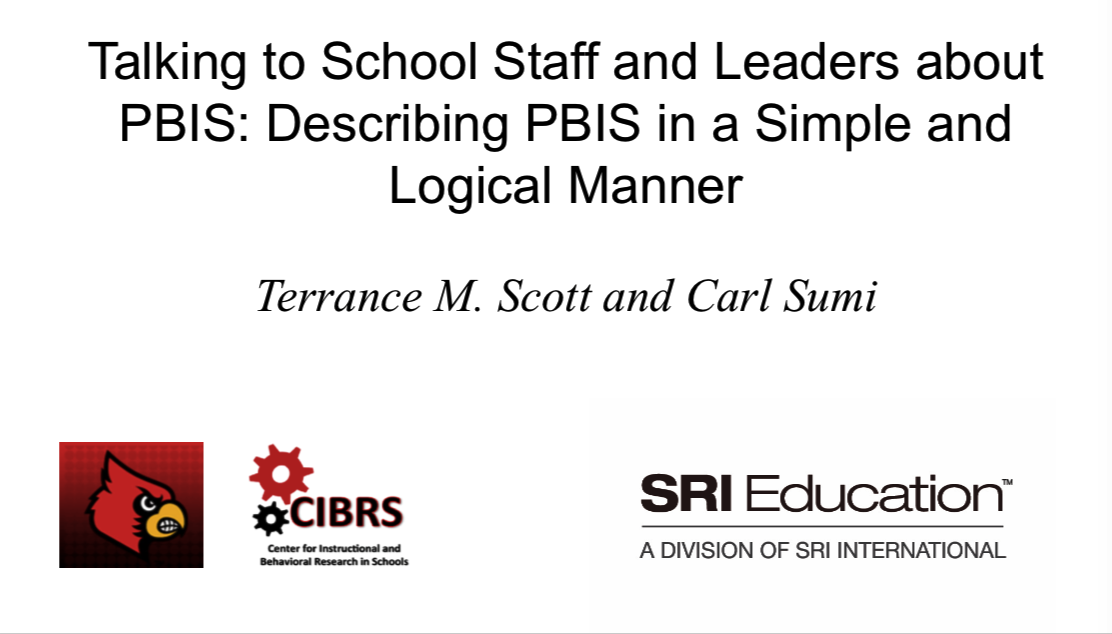
Talking to School Staff and Leaders about PBIS: Describing PBIS in a Simple and Logical Manner
(CA PBIS 2021) Sometimes it’s difficult to succinctly describe what it means to be a PBIS school. This presentation provided a big picture context for PBIS, breaking it down to its si ...
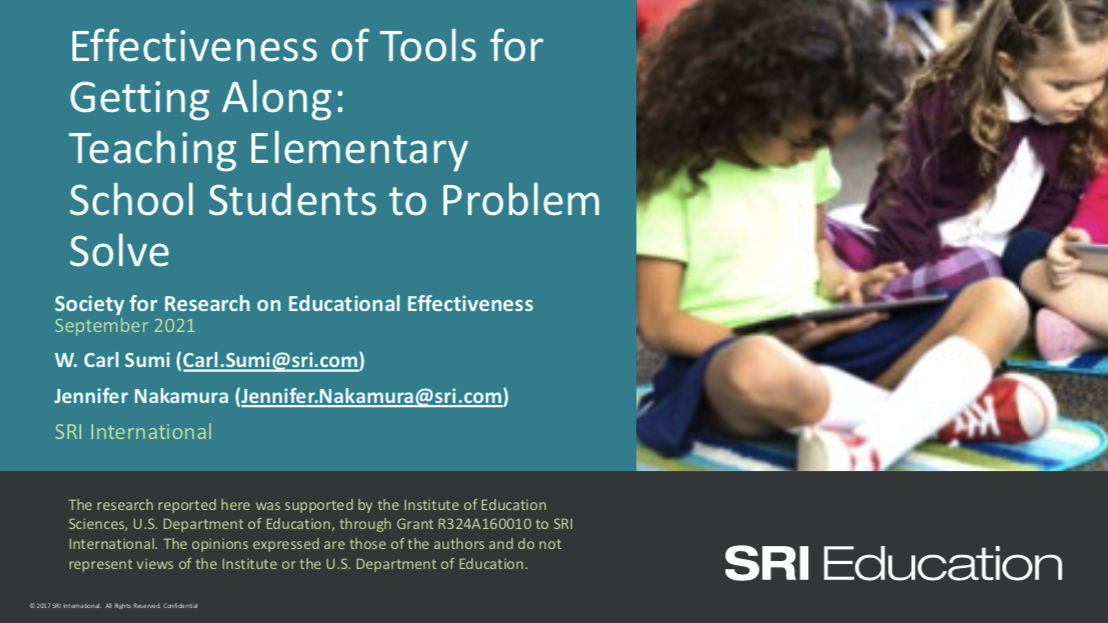
Effectiveness of Tools for Getting Along: Teaching Elementary School Students to Problem Solve
(SREE 2021) This presentation described results from an effectiveness study of the Tools for Getting Along (TFGA) social problem-solving program. The findings from this effectiveness study indicate that the TFGA program has robust positive impacts across student demographics, geographic locales, and socio-economic levels ...
